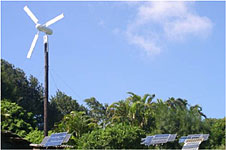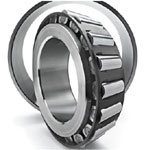 |
 |
 |
 |
|
Teaching Prof. C. Fred Higgs teaches 3 mechanical engineering courses at Carnegie Mellon. Since the Spring of 2004, Dr. Higgs has taught undergraduate Thermodynamics (24-221) and two graduate courses entitled Tribology: Fiction, Lubrication, and Wear (24-700) and Computational Fluid Mechanics (24-718).
The topics covered in this course include temperature and thermometry; equations of state for fluids and solids; work, heat, and the first law; internal energy, enthalpy, and specific heats; energy equations for flow; change of phase; the second law, reversibility, absolute temperature, and entropy; combined first and second laws; availability; power and refrigeration cycles. Applications to a wide range of processes and devices that produce energy are also studied. We also now introduce concepts of green energy. Innovation: One innovation in this course was teaching the development of next-generation “Green Energy” technologies.
This course will cover the science of surfaces interacting via dry, lubricated, and mixed (i.e., dry + lubricated) contact. Fundamental aspects include the Reynolds Equation, thermal-tribology, friction, and wear. Applied topics include bearings, surface analysis, nanomanufacturing, and biotribology. The course will concludes with a team project which will require computer programming.
This course focuses on numerical techniques for spatial discretization: finite difference, finite volume, and the solution of the Navier-Stokes equations. Explicit and implicit methods to solve classicial PDEs are learned, namely a review of the finite difference methods applicable to elliptic, hyperbolic and parabolic equations and the concepts of stability, consistency and convergence. The course culminates in students developing their own full-Navier Stokes CFD solver and a crash-course training in the commercial CFD software Fluent. Innovation: One innovation in this course was training students to develop their own CFD solvers (including the energy equation) to compare to commercial CFD tools. |
 Thermodynamics (24-221):
Thermodynamics (24-221): Tribology: Friction, Lubrication, and Wear (24-700):
Tribology: Friction, Lubrication, and Wear (24-700): Computational Fluid Mechanics (24-718):
Computational Fluid Mechanics (24-718):